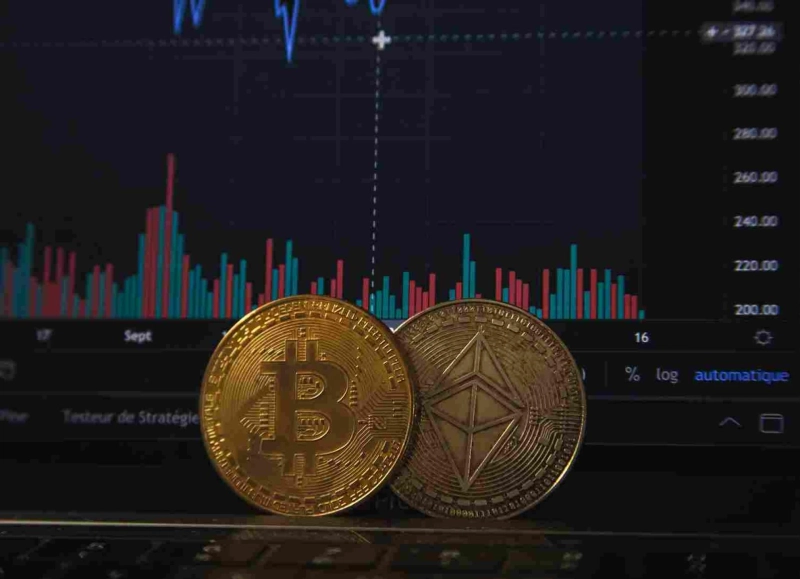A broker forex is a company that facilitates transactions on the foreign exchange market. They offer a variety of tools and resources for trading and investing in a wide range of assets. They also have robust educational and research offerings.
Brokers compensate for these services by charging a spread, or bid-ask difference, on trades. This spread is usually transparent to traders.
Leverage
Forex leverage is a tool that allows traders to increase their trade volume by borrowing funds from their broker. This is a valuable tool to use when trading currencies, as it can significantly increase your profits and reduce your risk of loss. However, it is important to note that leverage can also magnify your losses as well as your gains.
Leverage is offered by many forex brokers, and the amount varies among them. It is typically higher in the forex market than in other markets, and it can range from 10:1 to 100:1. This is because currency prices tend to fluctuate less than 1% during an intraday period, which makes it safer for brokers to provide large amounts of leverage.
Brokers use margin to protect themselves from a trader’s losses, and they require a certain amount of money as collateral for each trade. This is usually a percentage of the total notional value of the trade. Traders can set their margin requirements based on their risk preferences, and the broker will automatically close a trade when the margin drops to a predetermined level.
The amount of leverage available to a trader can vary depending on the type of currency being traded and the brokerage’s regulations. For example, a forex broker may require a higher margin requirement for some emerging market currencies than others. In addition, there are different regulations between countries and regions, so a broker’s leverage levels may change depending on where it is regulated. In most cases, a forex broker’s minimum margin requirements will be specified in its terms and conditions. Alternatively, traders can contact the broker directly to inquire about their margin requirements.
Spreads
Spreads are one of the main ways that broker forex customers pay for their trading services. They are the difference between the price that a trader pays to buy a currency pair and the price at which they sell it. They are usually calculated in pips, which are the smallest increments that prices can change. Traders also pay commissions when they trade.
Spreads can be either fixed or floating. Fixed spreads are unlikely to change, while floating ones change all the time based on market movements and trends. They can change for a variety of reasons, including news events and monetary policy changes. Floating spreads can also be affected by the liquidity of a currency pair. If there is a lot of interest in a currency, the spread will be narrower than if there is little demand for it.
Forex brokers make money by adding the spread to the bid-ask price. This makes it easier for traders to buy and sell the same asset. Traders pay the bid-ask spread when they trade, which means that they are paying the broker to take on their risk. Traders can reduce the spread by participating in liquid trading sessions. This is typically best done during the London and US sessions, which overlap. แนะนำโบรกเกอร์เทรดทอง
Forex spreads can be quite large, especially during times of high market volatility. This is because of the amount of capital that needs to be traded in order to make a profit. This is why it’s so important to understand the mechanics of how a spread works. This can help you avoid being taken advantage of by a forex broker. Traders should also look at the different types of accounts that a broker offers. Oftentimes, higher level accounts have better spread conditions. This is because it’s hard for a broker to maintain good spreads on all accounts, so they reward their highest volume clients with lower spreads.
Fees
The fees charged by brokers are a significant consideration for forex traders. Even if you’re the most skilled trader, transaction costs can put a dent in your wallet and reduce your profit potential. Therefore, it’s important to choose a broker that offers transparent and competitive trading fees. In addition to commissions, you should consider other costs that are not directly related to your trades, such as deposit and withdrawal fees.
Brokerage fees are the amount that brokers charge to act as middlemen between you and other buyers and sellers on a financial market. These costs vary by broker and asset class. Some brokers charge a flat fee, while others use a relative model that calculates the amount of the commission by the size of the trade. In either case, the lower these fees are, the better.
In addition to brokerage fees, you may also be charged a storage fee. This is a cost associated with the holding of assets in your account and comes on top of swap and financing fees. Fortunately, most brokers waive these fees.
Some brokers also charge inactivity fees, which are usually a small percentage of your account balance on a monthly basis. This is an unfortunate fee to pay, and it should be avoided at all times.
Choosing a forex broker with a good reputation and customer service is critical. You can determine the quality of a broker by checking its regulatory body memberships. Typically, a good broker will be regulated by the National Futures Association (NFA). You can also find out more about a particular broker by looking at the number of complaints on its website and social media pages.
Trading platforms
A trading platform is a software system that allows traders and investors to monitor their accounts, place trades and manage their trading positions. Some trading platforms are designed by brokerage businesses and offer specialized trading capabilities. Others are commercial applications that provide low-latency data, charts, news and educational resources. These systems can also support automated trading programs that use technical indicators and fundamental analysis.
Some brokers offer online trading platforms that work with a variety of investment vehicles, including stocks, ETFs and cryptocurrencies. Some also allow you to invest in mutual funds and options. These features can help you diversify your portfolio and maximize returns in the long run. However, you should consider your investment goals before selecting a platform. For example, some systems are geared toward day-traders while others are better suited to new and novice investors.
The way a broker compensates its customers is important to understand. Some brokers charge commissions to buy and sell on behalf of retail customers in the broader market, while others act as dealers or market makers by taking the opposite side of customer orders in order to profit from the spread. In both cases, a broker’s profit is the difference between its bid and ask price.
It is also essential to find a broker with an easy-to-use trading interface. A good online trading platform should provide low-latency data, intuitive layouts and a simple process for placing orders. Traders should also look for platforms that support advanced charting tools, such as advanced pattern recognition and triggers. Additionally, a platform should offer level 2 windows and detailed time and sales windows. This will let you see the real-time supply and demand for specific securities, which is critical to making informed trading decisions.
Customer service
If you’re new to forex trading, it’s important to choose a broker with great customer service. A good customer support team will be able to answer your questions and provide you with the information you need to make wise trades. This will help you avoid losing money and keep your trading profitable.
Moreover, it’s best to look for a forex broker that is regulated. This is because if something goes wrong with the company, the regulator will intervene and protect your funds. For example, the National Futures Association or NFA regulates many forex brokers and keeps tabs on their activities. In addition to this, a forex broker should be registered with the Commodity Futures Trading Commission or CFTC if it intends to advise U.S. clients about contracts. Similarly, brokers based in Europe should be regulated by the European Securities and Markets Authority or ESMA.
A reputable forex broker will display its regulatory credentials on its website. Moreover, it should have a multilingual customer support department available 24 hours a day and toll free. It is also a good idea to check whether the broker has a dedicated trading platform. Some brokers offer proprietary platforms while others use popular ones such as MetaTrader.
The cheapest brokerage rates are those offered by the smallest forex broker. However, you should be aware of the hidden fees and charges associated with forex trading. These include spreads, commissions, and overnight fees. A broker should clearly state these charges and provide an easy way to calculate them. The best brokers will also provide a demo account so that you can practice before risking real money. In addition, they will also have a robust education and training section.


